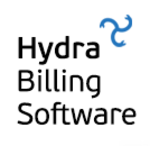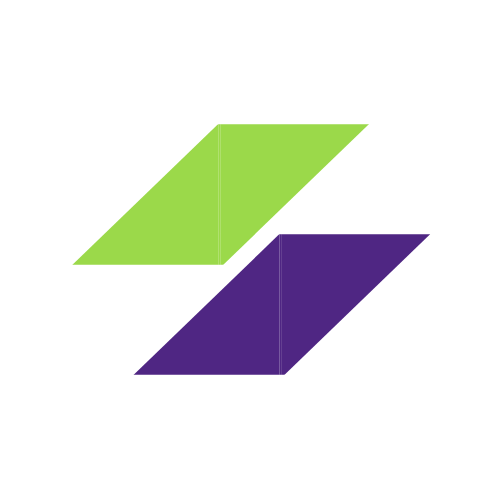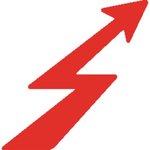Description

Hydra Billing

Invoicera
Comprehensive Overview: Hydra Billing vs Invoicera
Hydra Billing and Invoicera: Comprehensive Overview
a) Primary Functions and Target Markets
Hydra Billing:
-
Primary Functions:
- Hydra Billing is primarily a telecom billing solution designed to handle complex billing processes. It supports billing operations such as voice, data, SMS, and value-added services.
- The platform offers features like convergent billing, rating and charging, revenue assurance, and customer management.
- It also includes support for prepaid and postpaid billing, invoicing, collections, and payment processing.
-
Target Markets:
- The primary target market for Hydra Billing is telecommunication service providers, including mobile network operators, internet service providers (ISPs), and voice-over-IP (VoIP) providers.
- The solution caters to enterprises that require detailed billing operations and efficient revenue management across multiple service types.
Invoicera:
-
Primary Functions:
- Invoicera is a cloud-based invoicing and billing platform designed for businesses to manage their invoicing, expenses, and payment processes.
- It offers features like customizable invoicing, subscription billing, time tracking, payment gateway integration, and financial reporting.
- The platform also supports multi-currency and multi-language capabilities, making it suitable for global operations.
-
Target Markets:
- Invoicera targets a wide array of industries, including freelancers, small to medium-sized businesses (SMBs), and large enterprises.
- It is also popular among service providers, agencies, consultants, and e-commerce businesses that require streamlined billing processes.
b) Market Share and User Base
Hydra Billing:
- Hydra Billing is more niche-focused with a smaller market share compared to general billing solutions, due to its specialized nature within the telecom sector.
- Its user base consists primarily of telecom companies and operators that need robust and scalable billing systems.
Invoicera:
- As a cloud-based solution targeting a broader audience, Invoicera tends to have a wider market share in the invoicing and billing sector.
- Its user base is diverse, ranging from independent freelancers to large enterprises across different industries.
c) Key Differentiating Factors
-
Industry Focus:
- Hydra Billing is industry-specific, concentrating on telecommunications and related services, while Invoicera serves a broader range of industries.
-
Feature Set:
- Hydra Billing offers specialized telecom functionalities such as convergent billing and complex revenue assurance that are not present in Invoicera.
- Invoicera provides flexibility with standard invoicing, subscription management, and expense tracking, catering to a variety of business models and industries.
-
Customization and Scalability:
- Hydra Billing is designed to handle large volumes of transactions and various telecom services which might require more customization in terms of integration with existing telecom systems.
- Invoicera is highly customizable in terms of invoice templates and billing cycles, but focuses more on scalability across different business sizes rather than transaction volume.
-
User Engagement and Accessibility:
- Invoicera, being a SaaS solution, emphasizes ease of use with intuitive interfaces and easy accessibility for non-technical users.
- Hydra Billing, on the other hand, might require more detailed configuration and setup due to the complexity of telecom billing processes.
-
Geographical Reach:
- Invoicera's support for multiple currencies and languages makes it a suitable choice for businesses with international operations.
- Hydra Billing’s geographical reach primarily aligns with markets where telecom billing complexities require their detailed suite of tools.
In summary, Hydra Billing and Invoicera serve different niches within the billing and invoicing landscape, with Hydra Billing being essential for telecom service providers needing intricate billing solutions and Invoicera appealing to a wider audience with its flexible, easy-to-use invoicing capabilities.
Contact Info

Year founded :
Not Available
Not Available
Not Available
Bulgaria
http://www.linkedin.com/company/hydra-billing-solutions

Year founded :
2005
+91 95829 57066
Not Available
India
http://www.linkedin.com/company/invoicera
Feature Similarity Breakdown: Hydra Billing, Invoicera
When comparing Hydra Billing and Invoicera, two popular billing and invoicing software solutions, it's important to consider their core features, user interface design, and unique offerings. Here’s a breakdown:
a) Core Features in Common:
Both Hydra Billing and Invoicera offer a range of features that are essential for effective billing and invoicing solutions. These typically include:
-
Invoicing:
- Creation and customization of invoices.
- Automated invoice generation and scheduling.
- Support for multiple currencies and tax configurations.
-
Billing Management:
- Recurring billing and subscription management.
- Integration with payment gateways for seamless transactions.
- Handling of discounts, late fees, and promotional offers.
-
Reporting and Analytics:
- Basic financial reporting and revenue analytics.
- Dashboard overviews with key performance indicators.
-
Client Management:
- Customer databases with contact details and history.
- Client portal for viewing invoices and making payments.
-
Notifications and Alerts:
- Automated email reminders for due or overdue invoices.
- Notifications for successful payments or failed transactions.
b) User Interface Comparison:
-
Hydra Billing:
- Known for its straightforward and intuitive design, focusing on ease of use.
- Simplified navigation with clearly labeled sections for billing, reporting, and customer management.
- Prioritizes a clean, minimalistic aesthetic that reduces clutter and improves user experience for everyday tasks.
-
Invoicera:
- Offers a more detailed interface with advanced customization options, which may be more appealing for users who require detailed configuration.
- Emphasizes visual data representation with graphs and charts for reporting.
- Interface may seem complex to new users but provides extensive tools once acclimated.
c) Unique Features:
-
Hydra Billing:
- Stronger focus on telecom and utility industries, offering specialized features for these verticals.
- More robust integrations with industry-specific tools, enhancing workflow automation for businesses in those sectors.
-
Invoicera:
- Highly customizable invoicing templates, allowing for more personalized branding elements.
- Offers an extensive range of integration options with third-party applications, including CRMs and ERPs.
- Advanced multi-language support, making it appealing to businesses with global client bases.
Summary:
Both Hydra Billing and Invoicera have strong offerings in the billing and invoicing space, with core features that cater to basic and moderate user needs. While Hydra Billing excels in industry-specific solutions, particularly for telecom and utility sectors, Invoicera offers greater customization and integration flexibility suitable for businesses seeking a more globally adaptable tool. The choice between the two would largely depend on specific business requirements, the need for industry-specific features, and user preference for interface complexity versus ease of use.
Features

Not Available

Not Available
Best Fit Use Cases: Hydra Billing, Invoicera
Hydra Billing and Invoicera are both billing solutions designed to cater to different needs based on business size, industry focus, and specific use cases. Here's a detailed look at where each product might be considered the best fit:
Hydra Billing
a) For what types of businesses or projects is Hydra Billing the best choice?
-
Telecommunications: Hydra Billing is particularly well-suited for telecom operators, ISPs, and similar businesses due to its robust features for managing subscriptions, usage-based billing, and complex tariff structures.
-
Utility Companies: It supports utility billing for electricity, water, and gas companies by accommodating diverse charging models including pay-as-you-go and real-time usage billing.
-
Subscription-Based Services: Businesses offering subscription services, such as gyms or streaming platforms, can benefit from its flexibility in managing recurring billing cycles and customization of plans.
-
Large Enterprises with Complex Billing Needs: Companies that require comprehensive billing solutions tailored to handle multi-faceted tariffs, bundles, and packages might find Hydra Billing's features advantageous.
Invoicera
b) In what scenarios would Invoicera be the preferred option?
-
Freelancers and Small Businesses: Invoicera is intuitive and easy to set up, making it ideal for freelancers and small businesses needing a straightforward invoicing and billing solution without heavy customization.
-
Professional Services: Companies offering services such as consulting, marketing, or accounting can leverage Invoicera's time-tracking, expense management, and retainer invoicing features.
-
Service Agencies and Creative Firms: Invoicera's project management and client collaboration tools make it suitable for agencies that need to manage multiple projects and client interactions simultaneously.
-
International Businesses: With capabilities for multi-currency invoicing and multilingual support, Invoicera can be particularly useful for businesses operating in various countries.
d) How do these products cater to different industry verticals or company sizes?
Hydra Billing
-
Industry Vertical: Hydra Billing's strength lies in its adaptability to industries with complex billing requirements, like telecommunications and utilities, where real-time usage data and dynamic billing structures are essential.
-
Company Size: It is most beneficial for medium to large enterprises that have the infrastructure to support detailed billing operations and require high customization for their billing processes.
Invoicera
-
Industry Vertical: Invoicera caters broadly across industries that rely on service-based billing, such as professional services, creative agencies, and freelancers, where invoicing efficiency and client management are prioritized.
-
Company Size: Primarily aimed at small to medium-sized businesses, Invoicera offers scalability options for firms on a growth trajectory while ensuring ease of use for smaller setups.
Both Hydra Billing and Invoicera offer unique strengths tailored to specific business needs and thus should be chosen based on the requirements of the industry, the complexity of billing operations, and the business size.
Pricing

Pricing Not Available

Pricing Not Available
Metrics History
Metrics History
Comparing teamSize across companies
Conclusion & Final Verdict: Hydra Billing vs Invoicera
When comparing Hydra Billing and Invoicera, it's important to consider several key factors including features, pricing, customer support, scalability, and ease of use to determine which product offers the best overall value for your business needs.
Conclusion and Final Verdict
a) Overall Value:
- Hydra Billing is well-suited for businesses that need a robust billing solution with strong customization capabilities, particularly in telecom and subscription-based industries. Its ability to handle complex billing scenarios makes it a great choice for larger enterprises with specialized needs.
- Invoicera, on the other hand, provides an intuitive and user-friendly interface ideal for small to medium-sized businesses. With its extensive integrations and automation features, it offers excellent value for businesses looking for a more straightforward, streamlined invoicing and billing solution.
Given these considerations, Invoicera often offers the best overall value for small to medium enterprises due to its ease of use, comprehensive features, and cost-effectiveness. For larger businesses with more complex billing needs, Hydra Billing may provide more value through its customization and scalability.
b) Pros and Cons:
-
Hydra Billing:
- Pros:
- Highly customizable with support for complex billing scenarios.
- Strong scalability, ideal for growing businesses or those with high-volume transactions.
- Industry-specific features, especially in telecom and subscription services.
- Cons:
- Can be more expensive, both in terms of initial setup and ongoing maintenance.
- Steeper learning curve, which may require additional training for staff.
- Pros:
-
Invoicera:
- Pros:
- User-friendly interface with a quick learning curve.
- Excellent automation and time-saving features for invoicing and billing.
- Affordable pricing plans, particularly for small to medium businesses.
- Extensive integration options with other business tools.
- Cons:
- May not handle extremely complex billing scenarios as effectively as Hydra Billing.
- Limited customization for niche industries with specific billing requirements.
- Pros:
c) Recommendations for Users:
- Small to Medium Businesses: For SMBs seeking ease of use and affordability, Invoicera is recommended. Its streamlined features and automation capabilities can significantly enhance efficiency without overwhelming the budget or requiring complex customizations.
- Large Enterprises or Specialized Industries: For companies that operate in specialized sectors or require robust and customizable billing solutions, Hydra Billing is the preferable choice. Its ability to scale and handle complex processes will be advantageous.
- Trial and Evaluation: It is highly advisable to take advantage of any free trials or demos offered by both platforms. This hands-on experience will help in understanding which tool aligns better with your business operations and learning curve expectations.
- Assessing Business Needs: Consider both current and future business needs. If the business plans to scale or enter new markets in the future, opting for a solution like Hydra Billing that can grow with your business might be prudent.
Ultimately, the decision between Hydra Billing and Invoicera should be based on a comprehensive evaluation of specific business requirements, budget constraints, and growth projections.
Add to compare
Add similar companies




